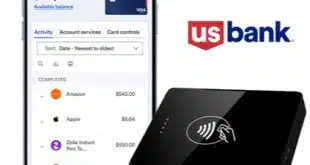Merchants have embraced prepaid cards, particularly their in-store gift cards, but they could get even more value?and profits?from them by focusing less on breakage and anonymity and more on giving customers cards with more utility that keep track of their spending, according to a researcher who tracks the prepaid industry. “If you look at their [merchants'] credit card side, they're all about mining data, getting loyalty involved, figuring out how to drive the consumer to their store and spend more when they come,” says Tim Sloane, director of the debit and prepaid advisory service at Waltham, Mass.-based Mercator Advisory Group Inc. “It simply has not flipped over when it comes to the prepaid gift card side.” Sloane spoke to Digital Transactions News after a Webinar on Monday afternoon entitled, “Open-Loop Prepaid In Retail?Expanding Consumer Payment Options.” Sloane suggests that merchants' strategies from the early years of prepaid cards, which proprietary or closed-loop cards dominated, might need some rethinking. Closed-loop prepaid cards have proven enormously popular with consumers and merchants alike. Mercator forecasts $201.7 billion in spending on all closed-loop prepaid cards, including gift cards, this year. Merchants like closed-loop cards not only because they eliminate the expense of paper gift certificates and can displace a sale on a more-expensive general-purpose credit or debit card, but also because they give retailers so-called breakage income, the value on each card never spent by the consumer. The downside, according to Sloane, is that merchants don't know who's buying their cards or how their customers spend outside the store?useful information when devising new rewards or loyalty programs to build long-term sales. Another reason for reducing anonymity is to build relationships with the large number of consumers who buy gift cards as budgeting tools. Citing prepaid card processor Comdata Corp.'s 2007 gift card survey, Sloane says 30% of gift card purchasers buy cards for themselves. At the Webinar, Sloane suggested merchants consider the debit equivalent of a cobranded credit card?one with some utility outside the store, which would enable the sponsoring merchant to devise more-targeted loyalty programs. So-called open-loop prepaid cards with Visa Inc., MasterCard Inc., American Express Co,. and Discover Financial Services logos are flooding the market, but banks and the AmEx and Discover networks are driving their growth. Mercator estimates open-loop prepaid card spending volume will hit $74.4 billion this year, with a projected compound annual growth rate of 66% through 2010, compared with 10% for closed-loop cards. Variations on the open-loop model include a semi-open network in which the primary sponsor of a gift card puts its logo on the front of the card and perhaps two non-competing merchants get space on the back, with consumers able to use the card at each co-sponsors' locations. Another variant is the decoupled debit card in which merchant partners offer rewards. Capital One Financial Corp., banking giant HSBC, and Tempo Payments Inc. all have iterations on decoupled debit, though Capital One's has received the most publicity despite only being in the test stage. Despite the fits and starts of prepaid cards outside the traditional closed-loop world?Cap One recently ended two decoupled-debit tests (Digital Transactions News, May 8)?Sloane believes such cards will continue to gain share. “It's important that merchants figure out how to adapt to this,” he said at the Webinar. The Institute for International Research's annual Prepaid Card Expo conference sponsored the event.
Check Also
U.S. Bank Tethers Payment Acceptance to a New Business Banking Account
U.S. Bank is stepping up its efforts to entice merchants to use its business checking …





